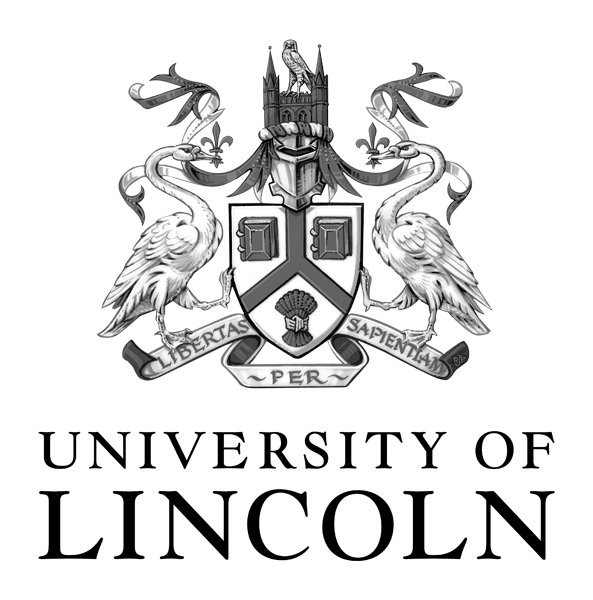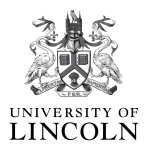Chris Packham Wildlife Photography Competition
The challenge
Get your cameras or smartphones ready! From our urban architecture, allotments, parks and commons, out into the woodlands, fields, riverbanks and beaches, there’s an abundance of wildlife out there. It could be a fox, a falcon, a beetle or a badger – we want to see your best photographs that represent the wild creatures, large or small, living around us.
The prize
Shortlisted images will be presented to Visiting Professor Chris Packham via a pop-up exhibition held at the University of Lincoln at the end of October. Four winning photographers will each receive a prize of a £25 Amazon voucher and be invited to join Chris on a visit to the set of a television wildlife production in 2018.

How to enter
Upload your photographs to Instagram using #ULWildlifeComp17 or email them to competitions@lincoln.ac.uk (Max 4MB as JPEG or JPG). You can enter up to four photographs in your submission.
Deadline for entries is midday on Thursday 26th October. Shortlisted entrants will be notified on Monday 30th October and invited to the pop-up exhibition the following day, where winners will be announced by Chris Packham.
Full terms and conditions can be found below.
Chris Packham Wildlife Photography Competition 2017 Terms & Conditions
PROMOTER
The Promoter of this Competition is: the University of Lincoln, Brayford Pool, Lincoln, LN6 7TS, United Kingdom.
ELIGIBILITY
There is no entry fee to enter this Competition but to be eligible you must be a student currently enrolled at the University of Lincoln (as at 1st October 2017). University staff, alumni and members of the public are not eligible to enter the competition.
HOW TO ENTER
The Competition is open from 00:01hrs BST (one minute past midnight) on Monday 9th October 2017 and the deadline for entries is 12:00hrs (midday) on Thursday 26th October 2017. After this date no further entries to the competition will be permitted. No responsibility can be accepted for entries not received for whatever reason.
Entries should be submitted by email in JPEG or JPG format of between 100KB and 4MB in file size. Please ensure your image is a minimum of 800 pixels on its shortest side. Send your image by email to: competitions@lincoln.ac.uk and / or upload them to Instagram using the hashtag #ULWildlifeComp17.
If sending via email please include the phrase “Wildlife Photography Competition” in the subject line. Entries should be accompanied by a short caption (up to 100 words in length) describing the image(s), including the subject, location, and date taken.
SUBMISSIONS
All entries must be original photographs taken by the named entrant. They must not have been published elsewhere or have won a prize in any other photographic competition.
It is the responsibility of entrants to ensure their submission does not infringe the copyright of any third party or any laws. Joint entries are not permitted. Reproduction or digital manipulation of any pre-existing image by another photographer is not acceptable.
Submitted photographs should be authentic representations of a natural scene featuring wildlife in the UK. Composites, double exposures and CGI imagery should not be used. Minor enhancements of raw images using photo editing software (eg. cropping, adjustment of colour levels) are permitted but please avoid heavy use of pre-programmed filters.
JUDGING
Shortlisted entrants and winners will be chosen by a panel of judges appointed by the University. The University’s decision in respect of all matters to do with the Competition will be final and no correspondence will be entered into.
Multiple entries are not permitted by the same individual but entrants may supply up to four images within a single submission. These could be a series of images from a single shoot or a small portfolio / collection.
The Prize may be withdrawn or replaced at any time. The Prize is not transferable and no financial alternative will be offered.
Shortlisted entrants will be notified by email on Monday 30th October and invited to an exhibition at the University on Tuesday 31st October, where four winners will be announced. If a winner cannot be contacted or does not claim the prize within 14 days of notification, we reserve the right to withdraw the prize from the winner and pick a replacement winner.
PERMISSIONS AND COPYRIGHT
If your photograph features any person or people, they should be aware that they are being photographed and written permission (model release) should be obtained by the photographer from all involved (or their parent’s/guardian’s permission if under 18). The University reserves the right to disqualify any entry where such permissions are unclear.
Copyright in all images submitted for this competition remains with the respective photographer. However, each photographer grants a worldwide, irrevocable, perpetual licence to the University of Lincoln to feature their submitted image in any of their publications, websites and/or in any promotional material connected to this competition, including licensing for (non-commercial) editorial use by third party media. The Promoter will always ask third party media to credit photographers where images are used but cannot be held responsible for errors or omissions.
Winners agree to the use of his/her name and image in any publicity material associated with the Competition. Any personal data relating to the winner or any other entrants will be used solely in accordance with current data protection legislation and will not be disclosed to a third party without the entrant’s prior consent.
INDEMNITY
To the maximum extent permitted by law, the University of Lincoln excludes its liability for any loss, damage, injury, cost or expense suffered by entrants, whether directly or indirectly and howsoever caused, in connection with the Competition and use of any prize. Nothing in these Terms and Conditions shall exclude the University’s liability for death or personal injury arising from its own negligence or any other liability that cannot, as a matter of law, be excluded.
By entering this competition you agree to indemnify the University of Lincoln and keep the University of Lincoln indemnified against any loss, damage, injury, cost or expense suffered by the University as a result of your entry in the Competition, including (but not limited to) any claim of infringement of intellectual property rights made by any third party.
The University of Lincoln reserves the right to cancel or amend this Competition and these terms and conditions without notice in the event of a catastrophe, war, civil or military disturbance, act of God or any actual or anticipated breach of any applicable law or regulation or any other event outside of the Promoter’s control. Any changes to the Competition will be notified to entrants as soon as possible.
ACCEPTANCE OF TERMS
The Competition and these Terms and Conditions will be governed by English law and any disputes will be subject to the exclusive jurisdiction of the courts of England. Entry into the Competition will be deemed as acceptance of these Terms and Conditions.
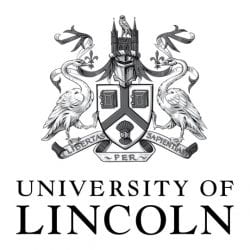
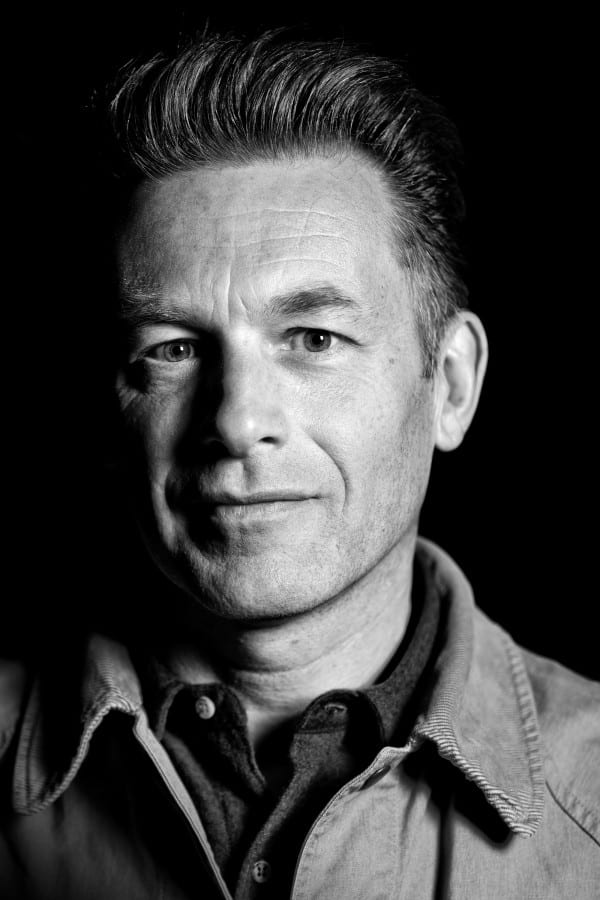
 Journalist Judy Friedberg is a freelance media consultant and journalist who worked on both foreign and home news before specialising in Higher Education as Universities Editor at the Guardian newspaper responsible for the University Guide and Guardian Students and overseeing the Higher Education editorial.
Journalist Judy Friedberg is a freelance media consultant and journalist who worked on both foreign and home news before specialising in Higher Education as Universities Editor at the Guardian newspaper responsible for the University Guide and Guardian Students and overseeing the Higher Education editorial.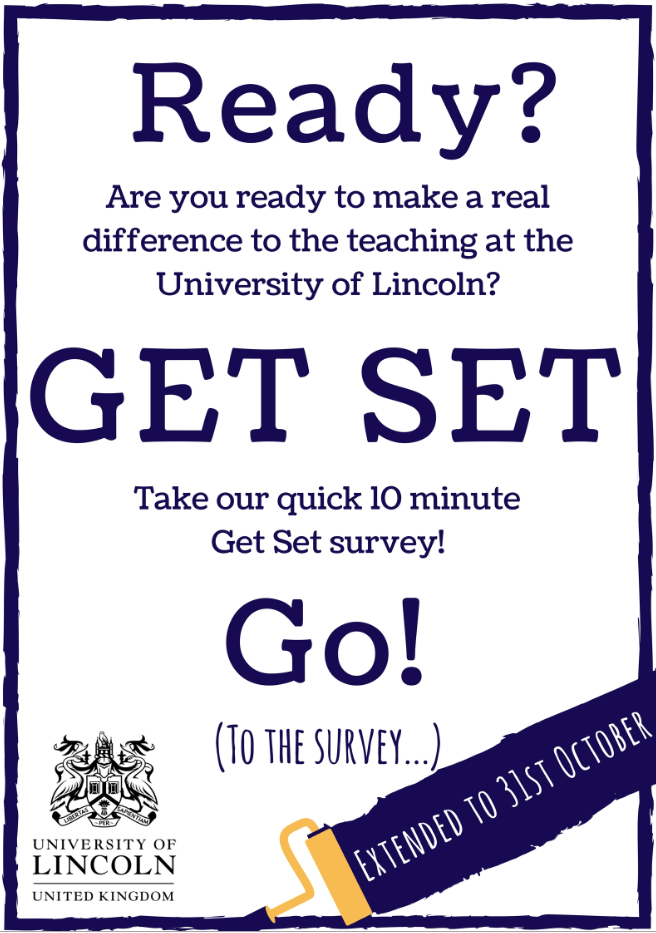
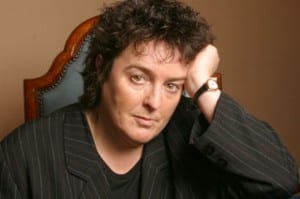 Poet Laureate, playwright and Visiting Poetry Artist at the University of Lincoln, Carol Ann Duffy will return to the University of Lincoln on the evening of Tuesday 16th November to read a selection of her works.
Poet Laureate, playwright and Visiting Poetry Artist at the University of Lincoln, Carol Ann Duffy will return to the University of Lincoln on the evening of Tuesday 16th November to read a selection of her works.
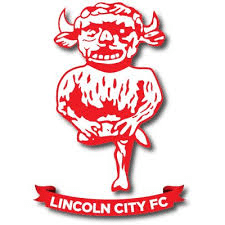 Uni Imps Tickets for Lincoln City vs Chesterfield on Saturday 7th October (3pm kick off) are now on sale from the SU reception in the Engine Shed.
Uni Imps Tickets for Lincoln City vs Chesterfield on Saturday 7th October (3pm kick off) are now on sale from the SU reception in the Engine Shed.